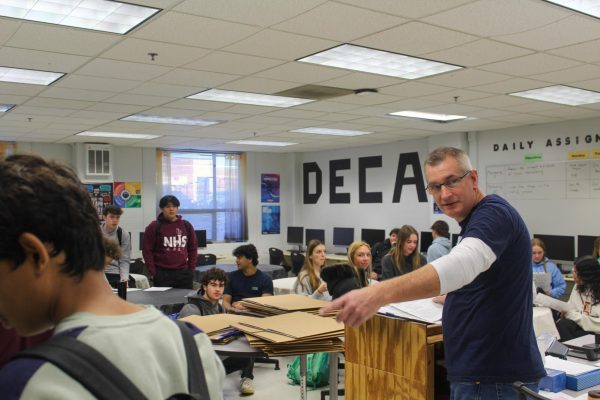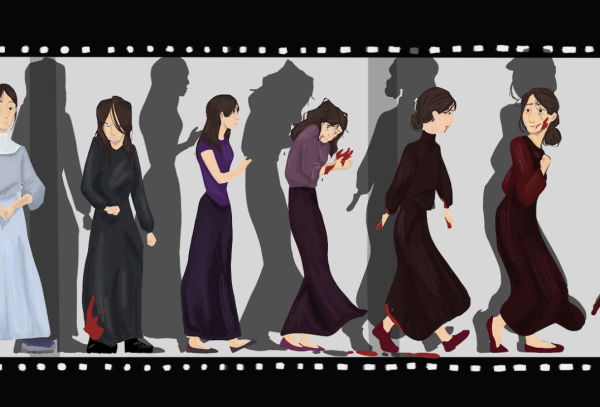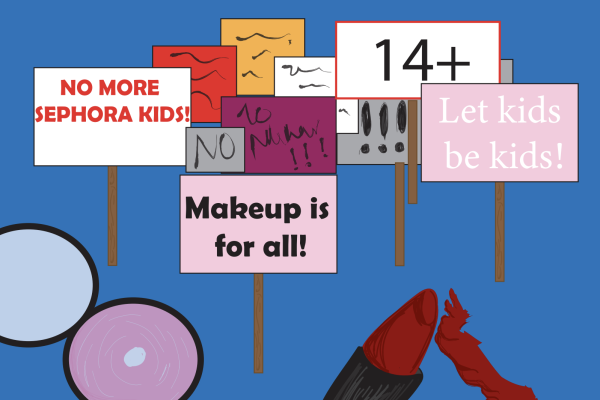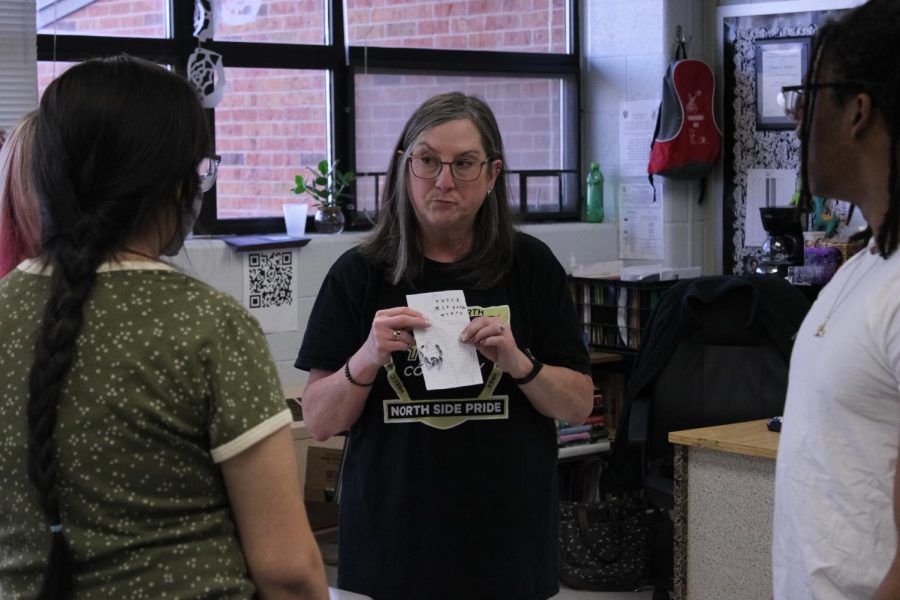Classes Like Black American History and Black Literature Face Scrutiny by Some
Credit to Eashaan Patel
Diane Fingers’ Black Literature class decorates their door for the Black History Month door decorating contest. Black Literature is a class offered at FHN which is taught by Fingers.
With Florida’s recent ban on the AP African American Studies course in the state’s high schools and rising opposition to teaching classes like it, these classes are in danger of being taken out of other schools around the country. At North, Black American History and Black Literature are offered, but if bans continue to happen across the country, they might leave.
“I feel like we need it. We just need it. That’s all there is to it,” Diane Fingers said. “I don’t think it should be isolated to a single course that you have to choose to take. I think we should be studying all kinds of literature in every single class.”
Black Literature is a semester-long class and is primarily focused on giving students the opportunity to read and learn about books written by black authors. Fingers helped to write the curriculum for the course and has been teaching the class since its first implementation at North in 2021. Sean Fowler teaches Black American History, which he also helped to write, and has been teaching the class since 2021. It is a semester-long class and is more focused on the history of African Americans in the United States and the African American experience.
“What I think is the benefit of this class is by the nature of it, we’re asking different questions,” Fowler said. “It’s not that history is not based in fact, history is always based in fact. But the questions you ask are going to change the narrative. And I think that’s why it’s important for this class. It gives people an opportunity to ask different questions and hear a different narrative.”
Both classes allow black students to see themselves represented in a class, but it also allows other students to see a different perspective from their own. In each class, students are able to ask questions and have open discussions to learn more about everyone’s experience. But these classes are targeted more than others based on concerns of Critical Race Theory being taught and of indoctrination.
“It’s not my job as a teacher to say ‘you must believe this’,” Fowler said. “My job is to introduce you and for us to ask questions and engage. Some people might walk away with one belief and others walk away with different beliefs and that’s what education is.”
Both Fingers and Fowler would eventually like to see the topics they explore in their own classrooms expanded into the broader curriculum of both English and history classes. They both would like to see these classes stay at North and they encourage students to take them.
“Keep talking about it, keep asking for it, take the classes,” Fingers said. “Go to the board and talk to them, speak at the board meetings, write those letters. You’ve got to take them because if you don’t take them, they don’t get to stay.”
Your donation will support the student journalists of Francis Howell North High School. Your contribution will allow us to purchase equipment and cover our annual website hosting costs.







